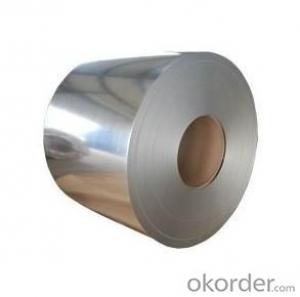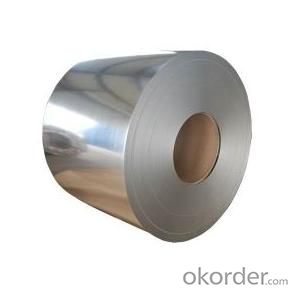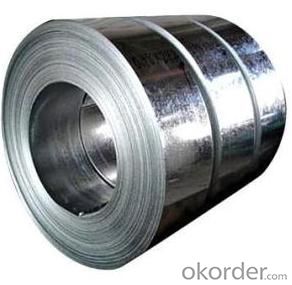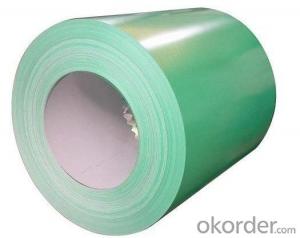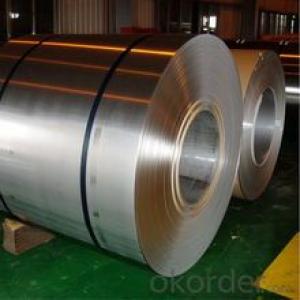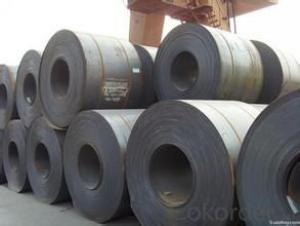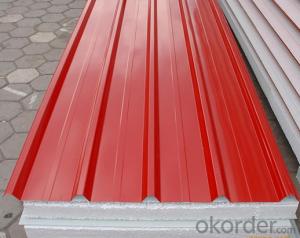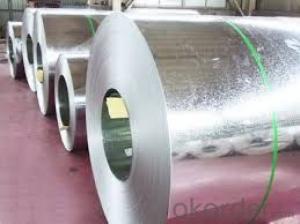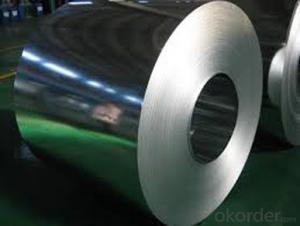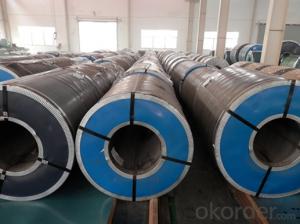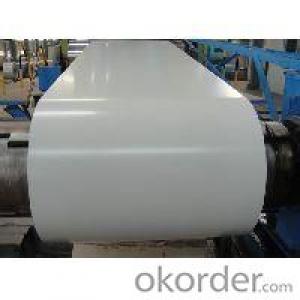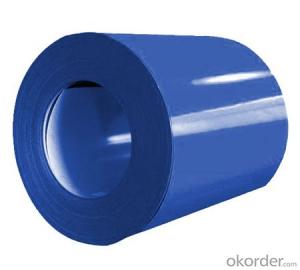Hot DIP Galvanized Steel Coils Regular 1000mm 1219mm 1250mm Z60-Z120 Dx51d+Z, DC01
- Loading Port:
- Shanghai
- Payment Terms:
- TT OR LC
- Min Order Qty:
- 25 m.t.
- Supply Capability:
- 10000 m.t./month
OKorder Service Pledge
OKorder Financial Service
You Might Also Like
Basic Info.
Model NO.:D560
Type:Steel Coil
Technique:Cold Rolled
Standard:ASTM, AISI, GB, JIS, DIN, BS
Surface Treatment:Galvanized
Special Use:Wear Resistant Steel
Application:Ship Plate, Boiler Plate, Container Plate, Flange Plate
Steel Thickness:0.12-3mm
Width:300 to 1500
Export Markets:Global
Additional Info.
Trademark:TRANDA
Packing:Standard Package
Standard:PRIME
Production Capacity:10000 Tons Per Month
Product Description
Description:
EN 10147 Structure hot dip galvanized steel coil S250GD+Z, S350GD+Z (SGC340, SS275, SS340)/Custom Deep drawing hot dip galvanized steel coil DX52D+Z, DX53D+Z, S
Galvanized steel is taken cold rolled steel as the base metal, after continuous hot dip galvanizing process, the product produced is an excellent resistance to atmospheric corrosion coating steel coil, as the steel gets coated in layers of zinc and rust won't attach this protective metal; Cold rolled plate by hot-dip galvanizing may extend the service life of 15-20 years.
For countless outdoor, marine, or industrial applications, galvanized steel is an essential fabrication component. Hot dip galvanized steel is used in applications where steel may be exposed to weather, but where stainless steel is too expensive.
Application:
Construction
Manufacture anticorrosion, industrial and civil architecture roof boarding, roof grille
Light industries
Home appliance's case, civil chimney, kitchen utensils
Auto industry
Corrosion resistant parts of cars
Agriculture
Food storage, meat and aquatic products' freezing and processing equipment
Commerce
Equipments to store and transport materials, and packing implements
| andard | EN 10142 EN 10147 | DX51D+Z, DX52D+Z, DX53D+Z SS250GD+Z, SS350GD+Z |
| JIS G3321 | SGCC, SGCD, SGCDD, SGC400 | |
| ASTM A792M | CS type C, CS type B, DS, SS250 | |
| Base Metal | Cold rolled steel coils SPCC, SPCD, SPCE, DC01, DC03, DC04, CS, DS, DDS, Q195, Q250, Q350 | |
| Thickness | 0.14mm-3.0mm | |
| Width | 600mm-1600mm | |
| Coil ID | 508mm, 610mm | |
| Zinc coating | 60g/m2-450g/m2 | |
| Surface treating | chromium free passivation, chromium passivation, fingerprint resistant, oiled | |
| Spangle types | Minimal spangle, zero spangle, regular and big spangle | |
- Q: How do steel coils impact the environment?
- Steel coils impact the environment in several ways. Firstly, the production of steel coils requires large amounts of energy and resources, leading to increased greenhouse gas emissions and depletion of natural resources. Additionally, the manufacturing process generates air and water pollution, contributing to environmental degradation. Furthermore, the disposal of steel coils after use can result in land pollution if not properly managed. Overall, the production and use of steel coils have a significant environmental footprint.
- Q: so i've started learning to play guitar in the past few weeks, and i'm using my sister's old guitar which isn't in very good condition, so i'm planning on buying a new one, but which would be better to buy, nylon string or steel string?
- It rather relies upon on what type of music you're enjoying, nylon string guitars have a mellow, softer tone than steel strings, the feel of the nylon strings (a minimum of to me) are reliable, in my opinion, i might ought to declare nylon is extra suitable, large for finger choosing and a effective tone. once you're searching for a guitar, you are able to flow out to a close-by guitar save, and attempt the two out for your self, in straight forward terms then will you comprehend for specific.
- Q: How do steel coils contribute to the renewable energy sector?
- Steel coils contribute to the renewable energy sector in several ways. Firstly, steel coils are used in the manufacturing of wind turbines. The towers of wind turbines are made of steel, and steel coils are used to fabricate the structural components of these towers. The high strength and durability of steel coils make them ideal for withstanding the harsh environmental conditions in wind farms. Moreover, steel coils are also used in the production of solar panels. Steel is used to create the frames and support structures that hold the solar panels in place. These frames need to be strong enough to withstand wind and weather conditions, and steel coils provide the necessary strength and stability. Furthermore, steel coils are used in the construction of transmission lines that carry electricity generated from renewable sources. Steel is widely used for the poles and towers that support these transmission lines, as it provides the necessary strength to bear the weight of the cables and withstand extreme weather conditions. In addition, steel coils play a crucial role in the manufacturing of energy storage systems. Renewable energy sources such as wind and solar are intermittent, and energy storage systems help to store surplus energy for later use. Steel coils are used in the fabrication of battery enclosures and racks, ensuring the safety and stability of these systems. Overall, steel coils contribute significantly to the renewable energy sector by providing the necessary strength, durability, and stability for various infrastructure components. Their use in wind turbines, solar panels, transmission lines, and energy storage systems helps to support the growth and development of renewable energy sources, making them an integral part of the transition towards a greener and more sustainable future.
- Q: What are the common coil coating methods?
- The common coil coating methods include roll coating, curtain coating, and spray coating.
- Q: What types of steel are used in steel coils?
- There are various types of steel used in steel coils, including carbon steel, stainless steel, and alloy steel.
- Q: How are steel coils used in the manufacturing of railway tracks?
- Steel coils are used in the manufacturing of railway tracks as they are processed into long, continuous lengths of steel rails. These coils are first uncoiled and then passed through a series of machines that shape, cut, and weld them together to form the required lengths and profiles of railway tracks.
- Q: I know you can still but steel core ammo. I have read that it IS Armor Piercing (AP) and I have read it is not. Which is true? I am not looking for its AP capabilities. I want it if it is or is not AP. I live in Oklahoma. I need to know if it legal for me to purchase it in this state; and where can i get it? I am over 18, not a felon, etc. I have seen it sold online in Oklahoma years ago, but have read it is and isn't legal to purchase here. I am looking for 7.62x39 steel core for an SKS. If anyone knows where or how to get some, please let me know, if it's legal. Thanks.
- If it is the same stuff I have seen before it is NOT AP stuff. The steel core is a mild steel that is used as a filler to give the bullet a longer bearing surface by reducing the weight that would have been the additional lead core. If the bullet was filled with all lead it would be over the weight desired for the load OR the projectile would be shorter making it less stable in flight. Also lead is a more costly metal to use than the cheap mild steel that China is producing. Anyone that has bought a tool at Wally World, BLOWES, Or HOMERS DESPOT in the last decade can vouch for how cheap the Chinese steel is...
- Q: What are the different types of steel coil packaging systems?
- There are several different types of steel coil packaging systems, including stretch wrapping machines, coil wrapping machines, steel coil strapping machines, and steel coil wrapping and strapping machines. These systems are designed to securely package steel coils for storage and transportation, providing protection against damage and ensuring safe handling.
- Q: How are steel coils used in the production of roofing panels?
- Steel coils are an essential component in the production of roofing panels. These coils, typically made of galvanized or coated steel, serve as the base material for manufacturing durable and high-quality roofing panels. Firstly, the steel coils are processed through a series of machines in a production facility. These machines flatten, clean, and shape the coils into the desired dimensions and profiles for the roofing panels. The process ensures that the steel coils are uniform in thickness and free from any impurities or imperfections that could compromise the integrity of the final product. Once the steel coils are prepared, they are then fed into a roll forming machine. This machine gradually bends and shapes the steel coils into the specific design and size required for the roofing panels. The roll forming process provides the panels with their distinctive corrugated or standing seam profiles, which enhance their strength and ability to withstand various weather conditions. After the roll forming process, the steel coils are cut into individual roofing panels of the desired length. These panels are then further processed to add additional features, such as coatings or finishes, for improved protection against corrosion and aesthetic appeal. The steel coils are often coated with protective layers, such as zinc or paint, to enhance their resistance to rust, UV rays, and other environmental factors. Finally, the roofing panels are packaged and shipped to construction sites or distributors for installation. The use of steel coils in the production of roofing panels ensures that the final product is strong, durable, and long-lasting. Steel is renowned for its high tensile strength, which makes the roofing panels capable of withstanding heavy loads, strong winds, and other external forces. In summary, steel coils play a crucial role in the production of roofing panels. They are transformed into the desired dimensions and profiles through a series of manufacturing processes, ensuring uniformity and quality. The resulting roofing panels are not only aesthetically pleasing but also highly durable, providing superior protection and longevity for buildings.
- Q: How are steel coils used in the production of fireproof doors?
- Steel coils are used in the production of fireproof doors as they are the primary material for constructing the door's core. The steel coils are shaped and layered to create a strong and heat-resistant core, which provides the necessary structural integrity and fire resistance required for fireproof doors.
Send your message to us
Hot DIP Galvanized Steel Coils Regular 1000mm 1219mm 1250mm Z60-Z120 Dx51d+Z, DC01
- Loading Port:
- Shanghai
- Payment Terms:
- TT OR LC
- Min Order Qty:
- 25 m.t.
- Supply Capability:
- 10000 m.t./month
OKorder Service Pledge
OKorder Financial Service
Similar products
Hot products
Hot Searches
Related keywords
